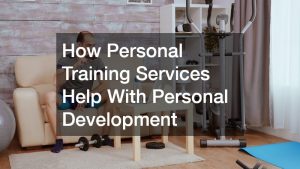At some point, people come to realize that they want to improve. We might be able to enjoy success in some ways and enjoy the rewards. But we also feel that it’s not enough.
Somehow, life conspires to prevent us from realizing our potential and accomplishing something meaningful. But while some people manage to transcend the ordinary, most remain mired in mediocrity. What sets those few apart? And how can you embark on that upward trajectory?
Be determined to learn
You can’t begin to get better without the recognition that you have room to grow. And that requires a certain level of awareness, both of yourself and the context in which you’re striving for improvement.
Thus, learning is the cornerstone of further development. And there are many ways to pursue further learning. Anyone who keeps a journal will invariably come to know themselves a little more each day. You can also seek out mentors or coaches, or explore online resources.
But even in a solo effort, in the early stages of learning, you can encounter roadblocks. For all the talk of a learning curve, our experience in this realm is rarely a smooth journey. It depends on where you find yourself across the personal zones of comfort, stretch, and panic.
No matter what skill or field of knowledge you’re seeking to master, learning comes in fits and spurts. Sometimes you’ll be making rapid progress without even realizing it. At other times, it will take great effort to grasp seemingly basic concepts.
When the pursuit of learning becomes challenging, you need to fall back on something other than interest and curiosity. This is where it becomes especially handy to develop a growth mindset.
As a student, you might have trouble mastering things; you might fail assessments. But you have to believe that potential isn’t an innate, fixed quality. It helps you to see mistakes and failures as further learning opportunities.
Build your team
Continued learning gives you greater ownership over your personal development. But it must be aimed at a specific goal. Even with a growth mindset, you shouldn’t embrace failure in the name of learning.
For instance, you can’t just take CNA training and tell yourself it’s okay to fail. You’ll try harder next time. Failure must lead to measurable improvements. Each iteration should take you closer to your objectives.
Formulate a plan, and apply yourself towards those goals. You can use the SMART framework from business management: specific, measurable, achievable, relevant, and time-bound. It will help you stay on track.
But hold yourself accountable for doing better. And if that involves pushing up against your weaknesses or things you prefer not to confront, self-reliance might not be enough.
Making progress places greater value on the help you can get from others. An external perspective is valuable because it gives you open and honest feedback. You might be refusing to recognize or change things, and it could hold you back.
You have to make sure that feedback and accountability will come from people you trust. That’s why it’s vital to surround yourself with the right team to support your growth.
Make progress with others

Moving forward, self-improvement is something that can’t be sustained as a solo effort. That’s all right if you’re pursuing personal interests, such as a painting hobby. In that case, the outcome of your learning isn’t tied to anything beyond your enjoyment.
But most people want to improve to achieve more in life. Often this comes down to career advancement. Sometimes, it can be about leaving the employment model and starting a business. Or obtaining enough career capital to pursue the sort of work that provides you with fulfillment.
You might have a team of friends and coaches who help you along the way. Yet even that system can only take you so far. At some point, your context takes on a more significant role.
Every organization in every industry desires innovation. It’s the only way that societies and individuals can continue to evolve in a changing future.
And innovation isn’t a quality you can teach yourself. It’s not the result of a top-down process of improvement. Innovation is the unpredictable product of interactions between like-minded, capable individuals.
If you want to take the ultimate step in self-improvement, recognize that the whole is greater than the sum of its parts. Slowly move away from the self-focused framework. Start building connections and collaborating with others who are involved in your areas of interest. You’ll be able to make progress together and achieve meaningful action.







